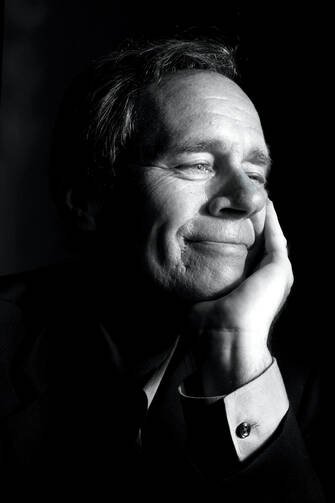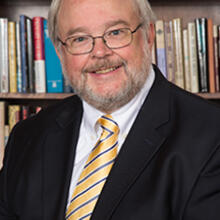Even in Washington there are things more important than politics. There are losses more profound than an election defeat or the failure of a piece of legislation. When we lose someone who reminds us of what is important and what is not, there are lessons for personal, public and religious life. For me, and apparently many others, my youngest brother, David Carr, was such a person.
On Feb. 12 I got a stunning call that David had collapsed and died at the age of 58 in the newsroom of The New York Times, where he served as a media columnist. As I tried to reach our family, the terrible news was already on our phone and TV screens. I was horrified. But minutes later, we saw the beginning of an outpouring of memories and reflections on the Internet, in the media and later at his wake and funeral.
David’s life was far too short, but it was very full, with so many unbelievable downs and ups that even he had to fact-check it for his book The Night of the Gun, in which he reported his hellish life as a coke addict and his rise to become a loving and loved father, a respected journalist, valued mentor and friend. David did not hide his failings and mistakes; he documented them in his book and acknowledged them in his column. But the overwhelming responses to his passing focused on the good he had done and the lessons we can learn from his unique journey.
There Are Second Chances. We could have lost David decades ago in an alley in Minneapolis or from an earlier bout with cancer. At the wake of a beloved cousin who died of a drug overdose, my dad whispered to David, “Is this what you have planned for us?” With the help of God, and many others, David took a different path. His rise and recovery were made possible by second, third and fourth chances and by his faith, hard work as a reporter, AA partners and good friends, and especially by his wife Jill and three daughters, Erin, Meagan and Madeline. Though he had no distinguished degrees nor an establishment résumé, The Times took a chance on David, and he became, in the words of the publisher, “one of the most gifted journalists who has ever worked at The New York Times.”
Family Comes First. David’s twin daughters saved his life and gave it purpose. He brought his infant twins to the local parish seeking baptism, saying that he could be a bad son, employee, friend, but not a bad father. The pastor simply said “welcome home.” Our parents and family never gave up on David, which made his recovery and achievements sources of enormous relief and gratitude.
Loyalty Counts. David challenged the media status quo and his own paper, but he was a fierce defender of good reporting in The Times and beyond. David was a demanding, often profane boss, but also a mentor who offered young reporters chances to fail and grow and his enduring loyalty and encouragement. Being his friend or colleague was not always easy, but it was never dull and often rewarding.
Respect Matters. David was a tough reporter and often a critical columnist, but many of those he covered and worked with recalled the respect and fairness he brought to journalism. He made judgments in his column every Monday, but, given his own failings and wounds, he was rarely judgmental. He treated interns, waiters, taxi drivers and homeless people like they were Pulitzer Prize winners.
Faith Gives Hope. David was a believer, a product of his strong Irish Catholic family and his reliance on God in recovery. Neither pious nor self-righteous, he found strength and direction from his Catholic faith. He once addressed a group of bishops on the church and addiction: “The unconditional love of the church could possibly mean the difference between somebody living or dying.... By demonstrating a willingness to minister to those afflicted with this disease, the church becomes better.” I’m grateful David lived to see Pope Francis and hear his calls for greater mercy, a humble church and a loving faith.
In his consoling and challenging homily during the funeral Mass, America’s James Martin, S.J., reminded us that David was not a saint, but he was a miracle—an example of how God’s grace, a family’s love, honest work and loyal friends can lift all of us sinners to live with faith, hope and love and leave our piece of this world a better place.








